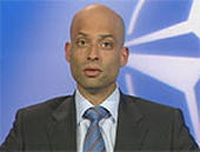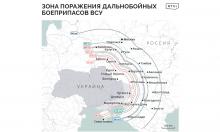NATO considering 'super envoy' appointment

A possible appointment of a "super envoy" to coordinate civilian and military efforts better in Afghanistan was discussed by NATO foreign ministers on Friday.
"Allies believe there is a need for greater coordination across the spectrum," alliance spokesman James Appathurai said.
British media reports have suggested that Lord Paddy Ashdown, a former international envoy in Bosnia, is being considered for the job. But Appathurai said no names were discussed in the NATO talks.
Meanwhile, Poland gave a boost to the NATO military mission in Afghanistan, offering eight helicopters to address a key shortage affecting the allied force of 41,000 troops. The offer includes four aircraft for transport, four attack helicopters and a number of additional troops, Polish and NATO officials said.
NATO also said Jordan has sent troops to join the alliance-led force in Afghanistan, the first time an Arab nation has publicly agreed to NATO's requests for assistance on the mission.
A document posted on NATO's Web site listed 90 Jordanian soldiers alongside other contributions to the force. Allied officials confirmed the presence of the troops but declined to say how long they had been in the country or what role they are playing, saying it was up to Jordanian authorities to give details.
NATO's top commander Gen. U.S. Gen. John Craddock said last week that he is seeking contributions from Arab nations in North Africa and the Middle East to help train Afghan army units.
Jordan's foreign minister joined the NATO ministers for lunch Friday along with foreign ministers from Israel and five other Arab nations as part of the alliance's efforts to build closer cooperation on counterterrorism and other issues with Mediterranean countries.
Alliance diplomats said that any decision on appointing an international envoy would have to be made at U.N. headquarters. The discussions in Brussels have focused on the possibility of combining the roles of the current civilian representatives of the U.N., NATO and the European Union in Kabul.
Diplomats noted a number of difficulties, however, including the reluctance of some U.N. members to be too closely associated with NATO and its military mission.
NATO officials said that, while the alliance would retain control over the international military force, the proposed envoy's role would probably focus on working in conjunction with the Afghan government on civilian reconstruction and political issues as well as coordinating cooperation with the NATO mission.
Subscribe to Pravda.Ru Telegram channel, Facebook, RSS!





